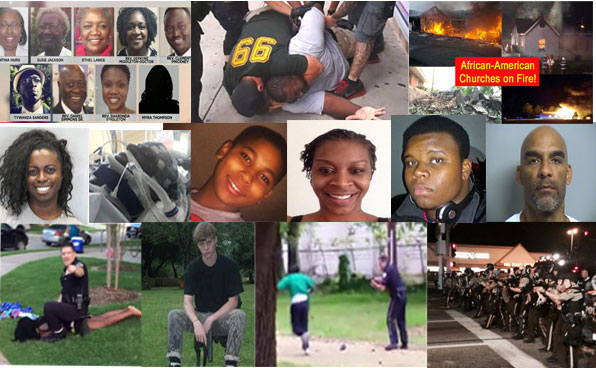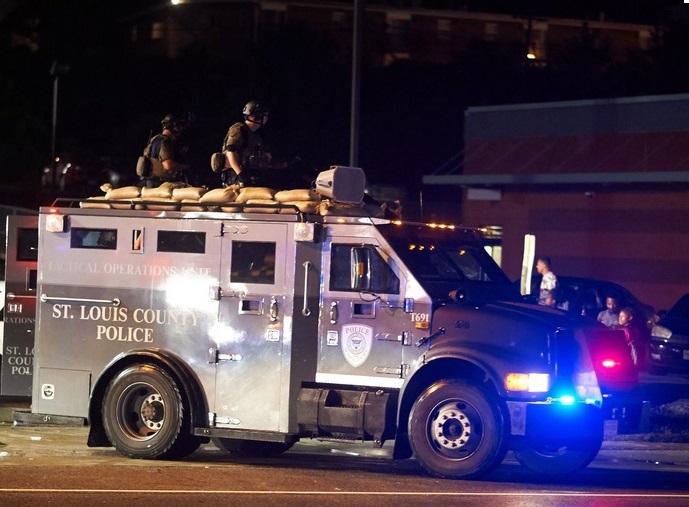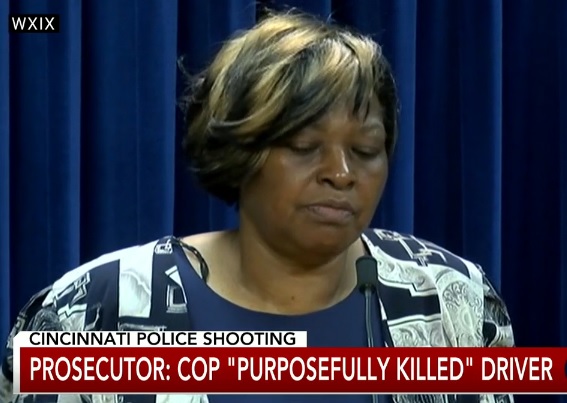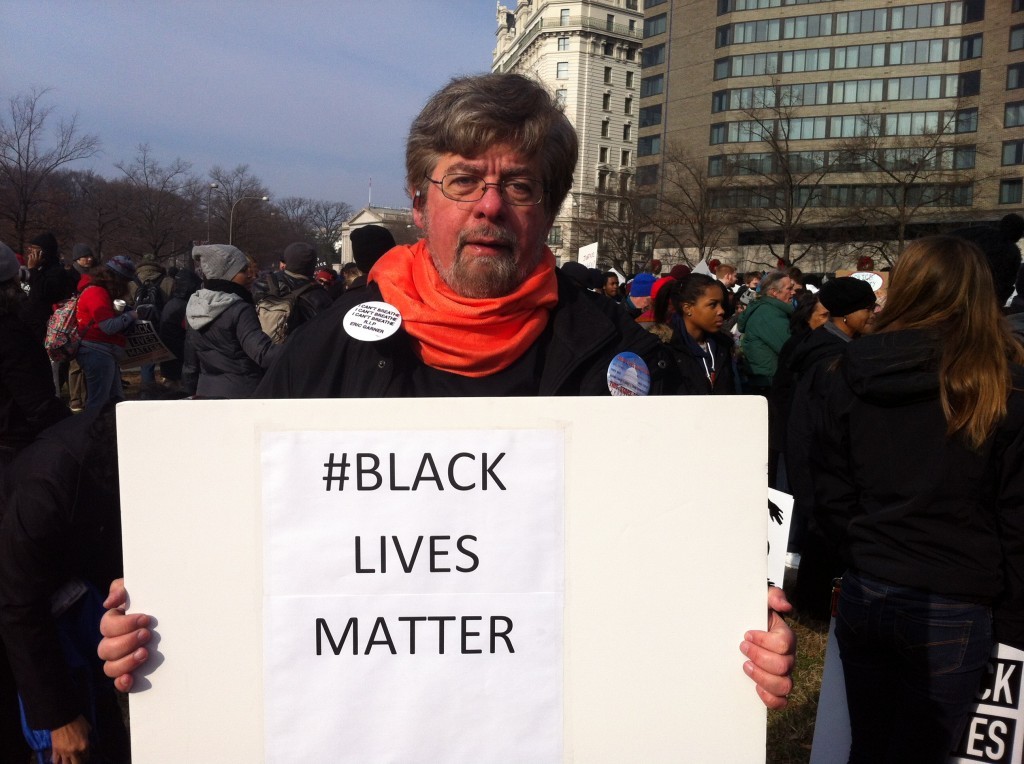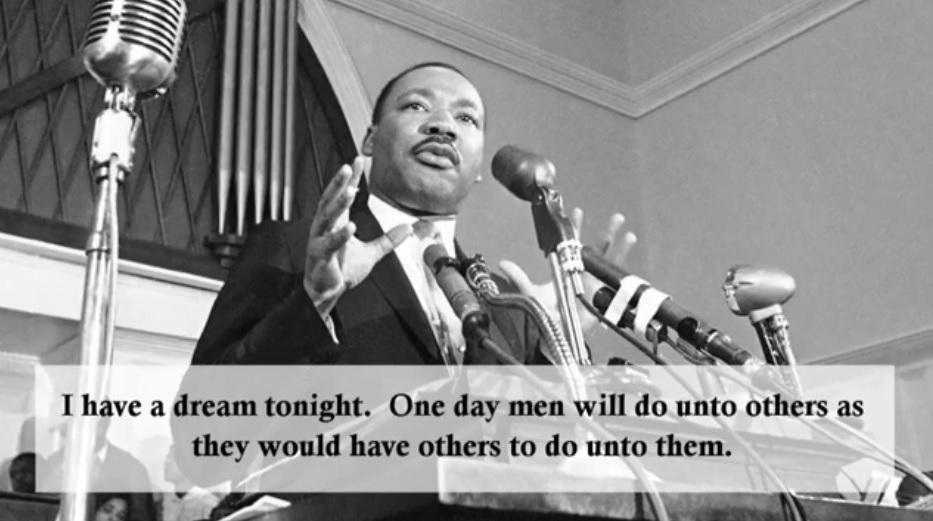In a human rights campaign in the United States of America, the question is being raised should we bother to try to “change hearts” on issues such as racial supremacist hatred and persecution? This question goes to the very root of our stand on our shared universal human rights for persecuted people in nations around the world.
The volunteer human rights group Responsible for Equality And Liberty (R.E.A.L.) holds the position that not only can we “change hearts” regarding persecuted people, but also that we MUST “change hearts” and reach the conscience of the majority public source of persecution – whether it is white Americans or it is any other majority group around the world. R.E.A.L. believes that practical steps for concrete change by legislation and resources cement these “changed hearts.”
But if we think we can simply “legislate” an end to hate and discrimination – history shows us that we are missing the most important part of the struggle, which is the struggle for the hearts and conscience of our fellow human beings. If we no longer believe that we can “change the hearts” of those who persecute against our fellow human beings in America or anywhere in the world, we need to ask ourselves – are those the cowardly half-measures that we would want to hear, if our identity group was being persecuted? Is this all that we would want done for us, if we were persecuted?
We need to remember that first and foremost – our shared universal human rights begins with our hearts.
Our Universal Declaration of Human Rights (UDHR) begins with reaching out to the world “conscience” of our fellow human beings, which has been outraged by the “disregard and contempt for human rights” resulting “in barbarous acts.”
In this UDHR and the world’s International Covenant on Civil and Political Rights (ICCPR), the world nations speak of a “human family,” they promote “universal respect,” and address the essential nature of respecting the “inherent dignity” of one another as human beings.
The founding declaration of the United States of America itself begins with a call for a “respect to the opinions of mankind,” and rights for equality, life, and liberty that it promotes, including the “pursuit of happiness.” This is more than unfeeling call for governmental change. This is based on compassion. This is based on respect for each other as human beings.
Human beings use our reason and our knowledge to guide our daily, routine actions, as do societies within our human family. But coherency in our society calls for more than simply cold reason and pragmatism, it also calls for a conscience, for respect, for dignity, and even for the happiness of our fellow human beings, and in the United States, for all of our fellow Americans.
Our shared universal rights depend on the compassion of our conscience to understand that our fellow human beings are unique, special, and have value – not for what they can do – but simply for who they are as our brothers and sisters in humanity.
Too frequently, the calls to seek widespread change in the persecution of minority groups (race, religion, ethnic group, gender, other identity groups) are readily dismissed by leading politicians. Too many politicians believe human rights groups, such as the Black Lives Matter group, should only protest to target the achievement of specific changing of laws or resources, rather than seeking to “change hearts” for those who have hatred against such persecuted groups.
The pragmatist politicians can tell us “I don’t believe you change hearts.” These politicians we need to set our expectations lower – to get the persecuted group more political power, more economic capability, more educational opportunities, a greater public voice. Then the political argument goes, if we achieve all of these things together – then we don’t need to “change hearts,” because we will have changed laws, resources, and systems that make “a real difference.”
The intent is no doubt to offer “pragmatic advice” to persecuted minorities to come away with some incremental accomplishment in decades of struggle against those majority identity groups persecuting them. But in America, it is nothing short of astounding that political leaders would ask African-Americans to set their expectations lower, after literally centuries of African-American patience in seeking equal treatment and justice in the United States.
When we try to simply legislate all of our human rights issues away, what is the result?
What happens when we don’t make our human rights goals to “change hearts” on an equal footing with seeking to “change laws”? Throughout the world, we see halting, inconsistent change. We see persecuted minorities constantly hitting “walls” or “ceilings” where they are not permitted, not accepted, and not tolerated – because there are areas where our legislation and our laws had not been clever enough to challenge systemic persecution yet.
Our persecuted minorities are then told, well, shouldn’t you be “glad with the progress you have,” after all things are “not as bad as they used to be.” From the majorities, our legislators and public make such comments without any embarrassment or shame. We create new laws to combat human rights abuses, but deceive ourselves that we don’t have to do the hard work of still challenging the consciences and the hearts of our fellow human beings.
We really do not build human rights simply through infrastructure and grants. We really do not build human rights simply through legislation and rules. Majorities may deceive themselves that such “practical” changes are all that we need, but the truth is that these only succeed where we have already gotten the hearts of our fellow human beings to change.
This issue of conscience and human rights may have been brought up in America, but this is a global issue, and it affects global minorities persecuted around the world, such as: Pakistan Christians, Rohingya Muslims, ethnic minorities in Darfur, Falun Dafa in China, and many, many other groups. This global issue affects all persecuted people of different races, religions, ethnic groups, and identity groups. Do we believe that these human rights abuses will be solved by a few laws, and not concern ourselves with changing hearts?
This global issue of conscience especially affects the persecuted WOMEN of the world. Although women are half of the world’s population, they continue to have less rights than men, and women continue to face such walls and ceilings in their lives around the world. Do we really think we can simply legislate these abuses against women away? Do we believe that ending the persecution of women does not require also changing hearts?
We don’t have to look around the world to see if an approach to legislating human rights is sufficient. The history of African-Americans in the United States of America provides a clear precedent and an example of the challenges we face when we think we can change laws, but not hearts. Changing laws and changing resources are clearly NOT ENOUGH – we can and we MUST change the hearts and awaken the conscience of the majority. The argument for persecuted minorities to “be patient” and seek “incremental progress” can really be taken to the point of absurdity. Surely Americans should know this.
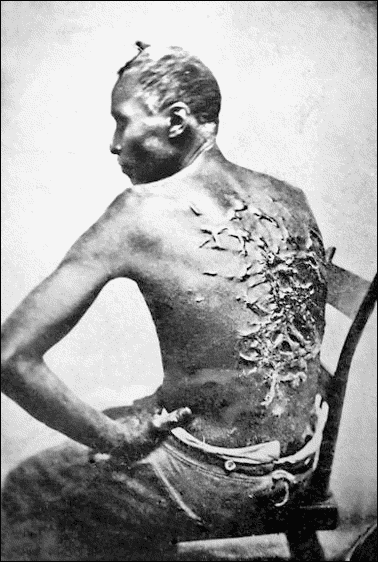
An African-American slave shows his scars from being whipped, Baton Rouge, Louisiana, 1863. (Source: Blakeslee Collection photograph)
150 years ago, the United States of America legislated the END of the abomination of slavery of African-Americans. This massive legal change was announced in the Emancipation Proclamation (January 1, 1863) by President Abraham Lincoln. President Lincoln – the executive of the United States of America – declared in a proclamation that “That on the first day of January, in the year of our Lord one thousand eight hundred and sixty-three, all persons held as slaves within any State or designated part of a State, the people whereof shall then be in rebellion against the United States, shall be then, thenceforward, and forever free; and the Executive Government of the United States, including the military and naval authority thereof, will recognize and maintain the freedom of such persons, and will do no act or acts to repress such persons, or any of them, in any efforts they may make for their actual freedom.” This was then legally defined in the U.S. Constitution in Amendment XIII (December 6, 1865), which stated “Neither slavery nor involuntary servitude, except as a punishment for crime whereof the party shall have been duly convicted, shall exist within the United States, or any place subject to their jurisdiction.”
Surely such commanding and unambiguous legislation, after the death of 400,000 U.S patriotic Union soldiers who lost their lives fighting Confederates who sought to preserve “the institution of slavery,” should have been sufficient for any reasonable and rational mind, yes?
But sadly, even that was not enough legislation against white supremacy. The American people had to issue another Constitutional Amendment XIV to stop ensure citizenship of African-Americans born in the nation: “All persons born or naturalized in the United States, and subject to the jurisdiction thereof, are citizens of the United States and of the State wherein they reside. No State shall make or enforce any law which shall abridge the privileges or immunities of citizens of the United States; nor shall any State deprive any person of life, liberty, or property, without due process of law; nor deny to any person within its jurisdiction the equal protection of the laws.” This was followed by the Civil Rights Act of 1866.
Then the American people had to issue yet another Constitutional Amendment XV to guarantee African-Americans the right to vote (February 3, 1870). African-American women had to wait to have the right to vote guaranteed for them, along with all other American women, another 50 years after that, until August 26, 1920, when the government certified the ratification of Constitutional Amendment XIX, which granted women the right to vote. In between these, the first Civil Rights Act of 1871 was created to help stop white supremacy terrorist persecution against African-Americans.
Still, as students of American history know, even 95 years ago, a massive Civil War, and three Amendments to the U.S. Constitution were not enough. We still had not sought to primarily “change hearts.” In Washington DC, during the administration of President Woodrow Wilson (March 4, 1913 – March 4, 1921), racial segregation was being practiced throughout federal government office buildings, and in too many parts of the nation, racial segregation was common.
Those who decided to find ways around the laws for equality still did so. In many states, they enacted “Jim Crow” laws to prevent African-Americans from voting and other parts of life in American until 1965. They were challenged by court cases, and finally by the Civil Rights Act of 1964 and the Voting Rights Act of 1965. But yet, this still was not enough, because even with all laws in place, America needed yet another Civil Rights Act of 1968 , which included the Fair Housing Act, as well as laws to legislate against actions by Ku Klux Klan and white supremacy terrorists who would seek to prevent violence against persecuted minorities in federal protected activities, under 18 U.S. Code § 245 – Federally protected activities.
(NOTE: when R.E.A.L. recently contacted the Ferguson police chief on the legal protections on the Civil Rights Act of 1968, 18 U.S. Code § 245 Federally Protected Activities, the chief was not educated on this – 47 years later – and had no idea these laws existed.)
After the murder of Martin Luther King, Jr. and other political leaders of that time, John F. Kennedy and Robert F. Kennedy, that generation of Americans certainly would like to believe that by the time of the 1968 Civil Rights Act — four Constitutional Amendments and five major Civil Rights Acts later — that we had legislated an end to white supremacy public discrimination against African-Americans. If just “changing the laws” were all we needed to do, then surely we had that done by 1968, 47 years ago. But history has shown us, without a doubt, that just changing the laws, and not changing hearts, has never been enough.
Many Americans, myself included, have searing and visceral memories of the shock and shame to see segrationists seek to have separate housing and restaurants to keep “whites” and “blacks” apart. My own hand tightens into a fist of frustration as I remember the shameful signs that read “White Clientele Only,” which I saw with my own eyes, in America. As small children, our young voices of conscience cried out in those days, as they must still today, when we are responsible adults who can make a difference. The dream of many Americans — that the routine respect and dignity of African-Americans as fellow citizens could be achieved in our lifetimes — has been clearly shattered when we see the atrocious behavior over the past year.
Repeatedly in the past year, Americans have seen MILITARY VEHICLES IN OUR STREETS used against our OWN CITIZENS calling for the rights of African-Americans, as the African-American public rightly has had enough of “patience.” The outrageous behavior by those extremists in law enforcement has been a disgrace to our nation as we have seen case after case of such intolerable behavior.
With the advent of new technologies for citizens to readily record and share such injustices, the American public has now had its eyes opened to a seamy persecution of African-Americans throughout our nation by those extremists who claim they have “the right” to do so by their law enforcement authority, which our representative democracies have given them. Once again, we have seen that our legislation has not changed hearts, even by those who claim to serve justice.
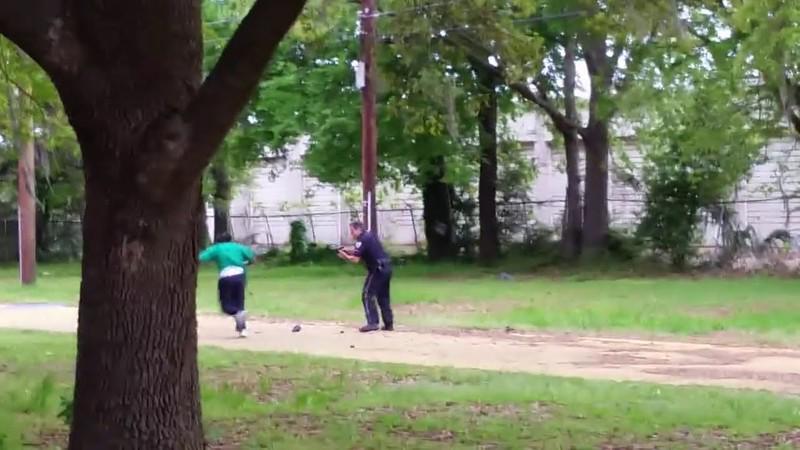
Shooting of African-American Walter Scott by White Police Officer Michael Slager – Charged with Murder (Source YouTube)
And the response by our government leadership to these disgraceful acts? “We need another law.” Really? You mean the four other Constitutional Amendments, the five Civil Rights Acts, and all of the endless individual laws that have flowed out of these acts, really are not enough? Or maybe we could start actually enforcing some of the laws we currently have? Maybe we could provide some national leadership and national government outrage at those in authority who abuse the laws we have now.
Instead, the next response by our federal government has been yet even more of the same regulatory incrementalism. After Ferguson, Missouri was burning last summer after persecution of African-Americans, and several other cases of unarmed African-Americans were killed by police, the “answer” was that our police would start to wear body cameras, and this would stop police brutality, and would stop extremists in law enforcement from killing African-Americans in the street. But even while this was only slightly implemented, we have also seen this summer, that regulatory solution still wouldn’t make a difference. The problem is you can have all the laws and all the technology you want. But if your police don’t understand the difference between right and wrong, and if your leaders have no intention of seeking to change the hearts of those who seek hatred against those in another identity group – then all the stopgap measures won’t work.
While wearing a camera, a police officer at the University of Cincinnati recently shot an unarmed African-American man Sam Dubose at a traffic stop and killed him in his automobile. We know – the nation (and the world) saw this all recorded on video. The police officer was not stopped or even slowed by his body camera to make judgments that would respect the life and human dignity of Sam Dubose – the only difference was that he was caught. But many others are “caught,” and nothing happens.
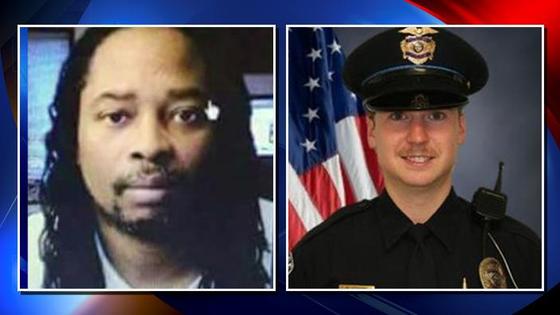
Sam Dubose Shot on July 19, 2015 by University of Cincinnati Police Officer Ray Tensing, who will Charged with Murder
We see videos of such atrocities against African-Americans all the time. Too frequently, we have seen white police extremists beating, degrading, and killing African-American men, women, and children: Sam Dubose, Walter Scott, Eric Garner, Tamir Rice, Michael Brown, Sandra Bland, Freddie Gray, Eric Harris, Natasha McKenna. The white supremacist terrorist attack in Charleston, South Carolina resulted in the murder of nine African-Americans: Rev. Clement Pinkney, Cynthia Hurd, Susie Jackson, Ethel Lance, Rev. Depayne Middleton-Doctor, Twanza Sanders, Rev. Daniel Simmons, Sr., Rev. Sharonda Singleton, Myra Thompson.
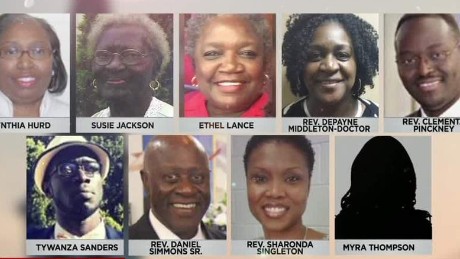
Nine African-Americans Murdered in Terrorist Attack on Charleston Church by Nazi/Confederate Dylann Roof
But such white supremacist terrorism is only the tip of the history of such terrorist persecution in America. Terrorist plot after terrorist plot has taken place with African-Americans and African-American churches and houses of worship targeted by white supremacists, including a bomb plot to kill 2,000 in a Martin Luther King, Jr. march, and a plot to murder over 100 African-Americans in church and to assassinate Barack Obama. African-American churches have regularly been the targets of arson and harassment with racist symbols.
Once again, our government leaders and politicians think “regulation” will solve this problem. But how many new regulations will it take? How many more laws will it take? What type of “resources” and “infrastructure” do we need to stop the human rights ethnic cleansing of African-Americans in this nation? What is going to TAKE for patriotic Americans to say ENOUGH?
Our politicians tell people to “be patient” and don’t try to “change hearts,” but “change laws.” But we already have many, many laws. We don’t have a shortage of laws at all. We have a shortage of conscience and hearts that respect African-Americans as human beings. That is the honest, painful truth, not a pleasant one for the politician, but one that patriotic Americans must face and address.
But for 239 years, African-Americans have been suffering from persecution in one form after another in the United States. We believed that “legislation” would work start solving this problem 150 years ago. Then we believed “legislation” would work to solve this problem 95 years ago, then 45 years ago, etc., etc.
Honestly, how many CENTURIES do our American political leaders REALLY expect African-Americans to be “patient”? How much irreversible damage to a nation, it’s trust and respect for one another, and its commitment to a shared culture and laws, is done by a policy which believes we really only make “change” by changing LAWS? Certainly, we must challenge the HEARTS and CONSCIENCE of majority of white Americans to defy the ideology of white supremacy, which is at the root of all of these human rights atrocities and systemic persecution!
If the past year of well-publicized atrocities by extremists in law enforcement and white supremacy terrorists against African-Americans hasn’t been horrifying for white American political leaders, what exactly will it take to make them realize that a policy of “more of the same” – is simply enough? We cannot effectively change our laws and change our societies, until we CHANGE OUR HEARTS.
History shows that real change and real support for our shared universal human rights begins with our commitment to our conscience to the hearts of our fellow men and women – of all identity groups. Changing hearts matters, when we seek to end persecution and oppression. No new law, rule, or institution can solidly stand through time, if we don’t first do the hard work of reaching the conscience, the integrity, and the hearts of those who must follow and respect such societal changes.
We would want the “golden rule” to be used for us. We should do unto others as we would have others do unto us. If our society’s conscience and hearts don’t understand this, we need to change enough consciences and hearts to ensure that human rights changes have a lasting effect.
We know that changing hearts, for persecuted people anywhere and everywhere in the world, is the most important step to be Responsible for Equality And Liberty.
